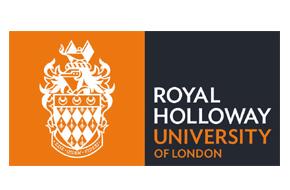For more information about Royal Holloway, please see this promotional video. To see a promotional video for the MA Consumption, Markets & Culture see here. To see a promotional video for the Royal Holloway School of Management, click here.
For more information about the Royal Holloway MA Marketing and MA Consumption, Culture & Marketing and the application process see here.
To get an understanding of the unique values that underly the MA Marketing and MA Consumption, Culture & Marketing programme please read these blog posts: Value of Scholarly Values, Importance of Reading and Morris Holbrook and Business Interest in Education.
To see examples of previous students work please click through to see the work of Yelena Sherbakov, Igor Korovenkov, Klara Scheurenbrand, Christina Demertsidou, Liliya Tokmantseva, Hafez Rafirasme, Asya Medvedeva, Vera Hoelscher, Milena Citton, Tracey Wechie, Hector Murphy and Alejandro Gallindo Diego.
Sunday, 17 November 2013
Marketing In Context
My new book, Marketing In Context, attempts to apply a consumer cultural perspective to marketing management and consumer policy issues. I discuss it in a podcast interview with Anna Farmery of www.theengagingbrand.com website here and there are cover reviews, contents and chapter excerpts on the publisher website here. It can also be purchased on Amazon here .
The book draws on many examples of recent brand marketing campaigns to try to show how the most creative and engaging marketing rests on a nuanced understanding of the cultural contexts of consumption. It uses the theatrical metaphor of the mise en scene to offer a sense of marketing not as a cognitive or neurological science of consumer control, but as method of cultural priming. The aim of the book is not to achieve a thoroughgoing cultural critique or to develop an academic theory but, rather, to sketch out a managerial account of marketing that resonates with current practice in the convergent economy.
One sub-theme of the book echoes Vance Packard's famous critique of marketing's use of depth psychology, which he published in 1957, and called The Hidden Persuaders. Packard's book was a call to arms for consumers to be alert to marketing's sinister use of shadowy social scientific techniques for manipulating consumer behaviour. In Packard's day the fear was of motivation research and 'subliminal' advertising. Today, the suspicion of marketing rests on its uses of neuropsychology ('neuro-marketing') or electronic surveillance and data-gathering.
In Marketing In Context I suggest that, in fact, Packard was tilting at the wrong windmill. Marketing's techniques of consumer control have been oversold. They don't really work. Its truly deep influence is not cognitive or behavioural but ideological, and I try to illustrate this with examples from Edward Bernays's propaganda model of Public Relations in the 1940s to the current fad for marketing that doesn't sell anything, like product placement, sponsorship, 'content' marketing and 'native' advertising.
Unlike Packard, I'm not unduly worried by marketing's subtle influence in framing my buying behaviour. Our sense of agency in consumer culture may be illusory, but there is no place beyond in which we could achieve a more authentic sense of realisation. Unlike the set in the Jim Carrey movie 'The Trueman Show', we cannot crash through the illusion of marketing to find a new world untainted by commerce. The influence of the market is thoroughly integrated into culture and our task is to try to understand how this plays out under the influence of the convergent media-driven economy. I think that the marketing discipline has been distracted by the chimera of consumer control through psychology, and its cultural influence needs to be acknowledged, for the ultimate benefit of consumers, citizens, managers, policy-makers and regulators.
Subscribe to:
Post Comments (Atom)


No comments:
Post a Comment